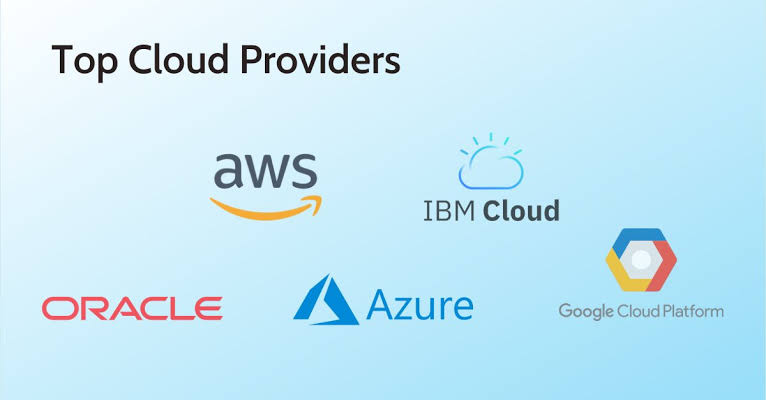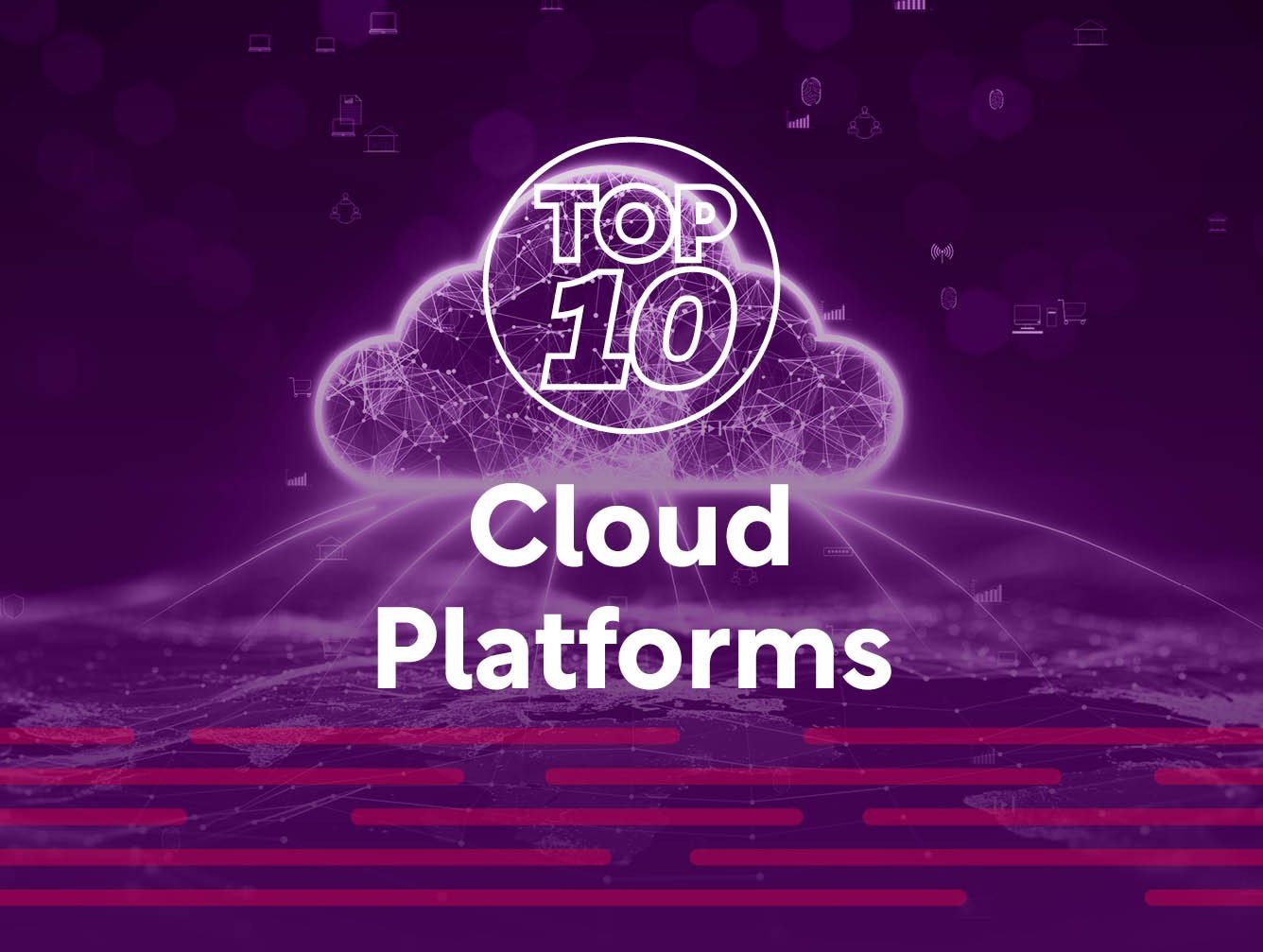In today's digital era cloud computing has become indispensable for businesses seeking to enhance their operations. Improve scalability. Reduce costs. With myriad cloud platforms available, choosing the right one can be challenging. This article explores top 10 cloud computing platforms that businesses can leverage for their unique needs. Focusing on their features and benefits. Ideal use cases.

1. Amazon Web Services (AWS)
Amazon Web Services (AWS) is most prominent cloud computing platform globally. Renowned for its comprehensive range of services AWS offers over 200 fully featured services from data centers worldwide. This makes it a preferred choice for businesses of all sizes. Its extensive suite includes computing power. Storage, databases machine learning, analytics. All provided and more. The pay-as-you-go pricing model and scalability options cater to both startups and large enterprises.
AWS is particularly beneficial for businesses requiring a robust. Reliable infrastructure. Its high availability and security standards ensure data integrity. And protection. Furthermore AWS's extensive ecosystem supports wide range of applications, from simple websites to complex machine learning models.
2. Microsoft Azure
Microsoft Azure is another leading cloud platform, known for its strong integration with Microsoft products and services. Azure offers a broad spectrum of cloud services, including computing, analytics, storage, and networking. Its hybrid cloud capabilities allow businesses to seamlessly integrate on-premises infrastructure with the cloud, providing greater flexibility and control.
Azure's strength lies in its enterprise-grade solutions, making it ideal for large organizations with existing Microsoft ecosystems. The platform's support for various programming languages, tools, and frameworks enables developers to build, manage, and deploy applications efficiently. Additionally, Azure's security and compliance offerings meet stringent regulatory requirements, ensuring data privacy and protection.
3. Google Cloud Platform (GCP)
Google Cloud Platform (GCP) is renowned for its data analytics and machine learning capabilities. GCP offers a suite of cloud computing services that run on the same infrastructure that Google uses internally for its end-user products, such as Google Search and YouTube. The platform excels in big data, artificial intelligence (AI), and machine learning (ML), providing advanced tools and frameworks for data scientists and developers.
Businesses leveraging GCP can benefit from its robust data processing and analytics capabilities, making it an excellent choice for companies focused on data-driven decision-making. GCP's global network ensures low latency and high performance, while its strong security measures protect sensitive data.
4. IBM Cloud
IBM Cloud is a comprehensive cloud platform that combines infrastructure as a service (IaaS), platform as a service (PaaS), and software as a service (SaaS). IBM Cloud is particularly known for its AI and machine learning offerings, powered by IBM Watson. The platform supports a wide range of industries, including healthcare, finance, and retail, providing tailored solutions to meet specific business needs.
IBM Cloud's hybrid and multi-cloud capabilities allow businesses to connect and integrate workloads across different environments seamlessly. Its robust security and compliance features ensure data protection and regulatory adherence. Additionally, IBM Cloud's extensive suite of tools and services supports innovation and digital transformation initiatives.
5. Oracle Cloud Infrastructure (OCI)
Oracle Cloud Infrastructure (OCI) offers a comprehensive suite of cloud services, including compute, storage, databases, networking, and more. OCI is designed to run mission-critical applications and provides high performance, reliability, and security. Oracle's strong focus on enterprise applications makes OCI an ideal choice for businesses with complex IT requirements.
OCI's autonomous services, such as Oracle Autonomous Database, leverage AI and machine learning to automate routine tasks, enhance performance, and improve security. This automation reduces operational costs and frees up resources for innovation. Furthermore, OCI's hybrid cloud solutions enable businesses to modernize their IT infrastructure while maintaining compatibility with existing systems.
6. Salesforce Cloud
Salesforce Cloud is a leading cloud platform focused on customer relationship management (CRM). It offers a wide range of cloud-based applications for sales, service, marketing, and more. Salesforce's strength lies in its ability to centralize customer data, streamline business processes, and improve customer engagement.
Businesses using Salesforce Cloud can benefit from its robust CRM capabilities, which provide a 360-degree view of customers and support personalized interactions. The platform's extensive ecosystem of apps and integrations allows businesses to extend functionality and tailor solutions to their specific needs. Additionally, Salesforce's AI-powered analytics tools help businesses gain actionable insights and make data-driven decisions.
7. Alibaba Cloud
Alibaba Cloud, also known as Aliyun, is a leading cloud provider in Asia and a global competitor in the cloud computing market. It offers a comprehensive range of cloud services, including elastic computing, data storage, relational databases, big data processing, and AI. Alibaba Cloud's global infrastructure ensures high availability and low latency, making it suitable for businesses with international operations.
Alibaba Cloud's strength lies in its big data and AI capabilities, providing advanced tools and frameworks for data analysis and machine learning. The platform's robust security features and compliance certifications ensure data protection and regulatory adherence. Additionally, Alibaba Cloud's scalability and cost-effectiveness make it an attractive option for businesses of all sizes.
8. SAP Cloud Platform
SAP Cloud Platform is a PaaS solution designed to help businesses build, extend, and integrate business applications. It offers a wide range of services, including database and data management, application development, and analytics. SAP Cloud Platform is particularly known for its integration capabilities, allowing businesses to connect disparate systems and streamline workflows.
Businesses using SAP Cloud Platform can benefit from its strong focus on enterprise applications and its ability to support digital transformation initiatives. The platform's robust security and compliance features ensure data protection, while its scalability allows businesses to adapt to changing demands. Additionally, SAP Cloud Platform's extensive suite of tools and services supports innovation and agility.
9. VMware Cloud
VMware Cloud offers a comprehensive suite of cloud services that enable businesses to build, run, and manage applications across multiple environments. VMware's hybrid cloud capabilities allow businesses to seamlessly integrate on-premises infrastructure with the cloud, providing greater flexibility and control. The platform's strong focus on virtualization makes it an ideal choice for businesses looking to modernize their IT infrastructure.
VMware Cloud's robust security and compliance features ensure data protection and regulatory adherence. The platform's extensive suite of tools and services supports digital transformation initiatives and helps businesses improve operational efficiency. Additionally, VMware Cloud's scalability and cost-effectiveness make it an attractive option for businesses of all sizes.
10. Adobe Creative Cloud
Adobe Creative Cloud is a suite of cloud-based applications and services for creative professionals. It offers a wide range of tools for graphic design, video editing, web development, and photography. Adobe Creative Cloud's strength lies in its ability to provide a seamless and integrated workflow for creative projects.
Businesses using Adobe Creative Cloud can benefit from its robust set of tools and services, which support innovation and creativity. The platform's cloud-based storage and collaboration features enable teams to work together efficiently, regardless of location. Additionally, Adobe Creative Cloud's regular updates and new features ensure that businesses always have access to the latest tools and technologies.

